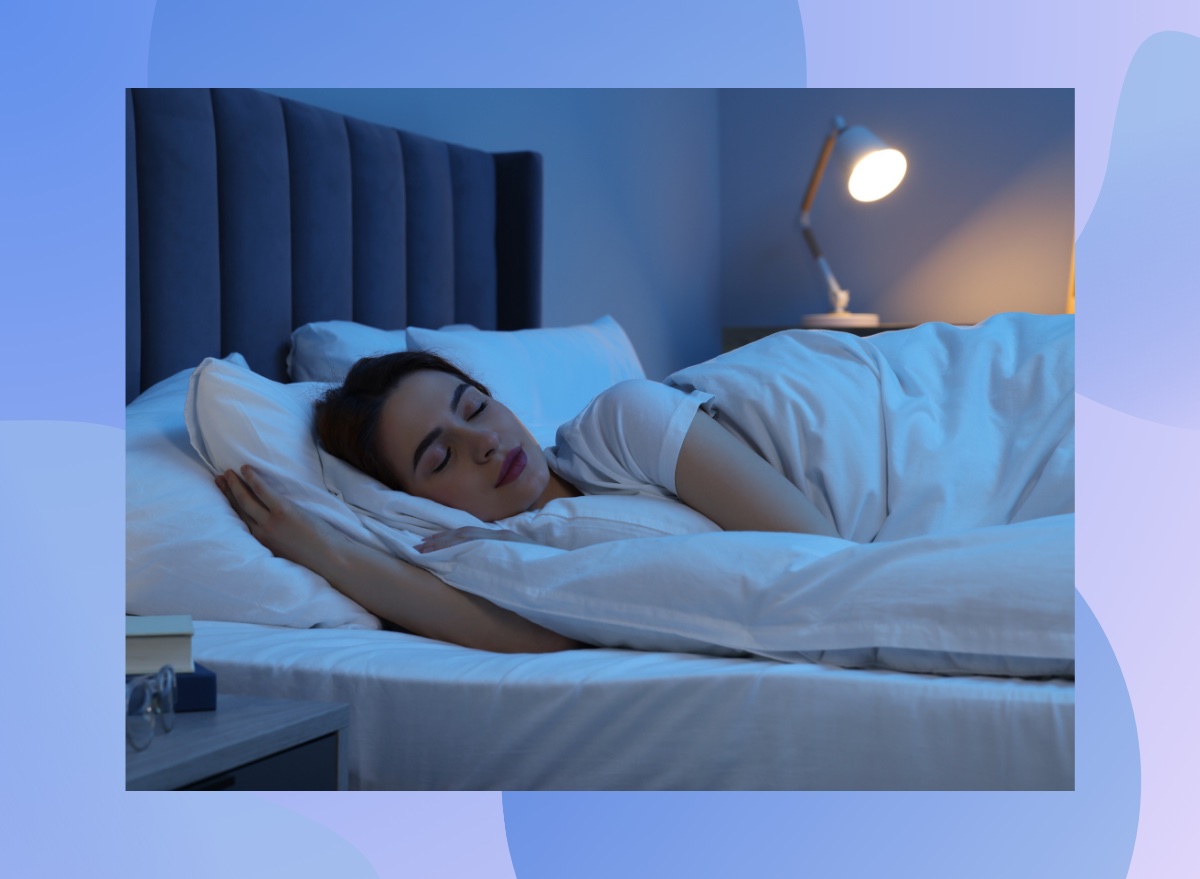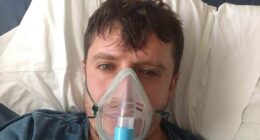Did you know that insufficient sleep can negatively affect your weight-loss goals? Along with exercising and consuming a nutritious diet, getting enough solid rest is crucial for weight loss. That’s why we spoke with registered dietitians who unveil their best “sleep extension” techniques for weight loss, which can help you achieve better, longer Zs.
Research shows that various sleep extension techniques can be an excellent addition to a weight-loss regimen. For instance, according to a study published in JAMA Internal Medicine, individuals who lengthened their sleep duration experienced a reduced caloric intake of around 270 daily calories. Needless to say, getting more quality sleep pays off.
“When you’re more well-rested, you have the energy to be active [to] burn more calories,” explain The Nutrition Twins®, Tammy Lakatos Shames, RD, CDN, CFT, and Lyssie Lakatos, RD, CDN, CFT, members of our Medical Expert Board. “You also have the energy to strength train so you can build lean muscle tissue, which speeds up your metabolic rate, helping you burn more calories, even while you sleep. “
However, when you don’t get a good night’s rest, you’re tired, which can negatively impact your judgment. “Lack of sleep makes it more difficult to make rational decisions, and while you have less energy, you’ll also care less about [your choices]—many people will simply grab the fastest meal or snack they can find,” The Nutrition Twins tell us.
When you’re fatigued, your brain yearns for the quickest pick-me-up it can find, such as refined carbohydrates and/or sugar, which are filled with calories and don’t provide nutrients or fiber. In addition, being sleep-deprived makes it challenging to find the motivation to work out. You’re more likely to skip out on the gym and torch fewer calories.
“Also, when you don’t sleep enough, you have higher levels of the [hunger] hormone ghrelin, so you’re hungrier,” The Nutrition Twins add. “Lack of sleep also decreases leptin, your satiety hormone, so you feel less full … Good sleep is essential for [the] proper functioning of your hunger and satiety hormones (ghrelin and leptin, respectively).”
Now that you know the importance of getting a solid night’s sleep, let’s dive into the best sleep extension techniques for weight loss.
Stay away from caffeinated beverages after 3 p.m.
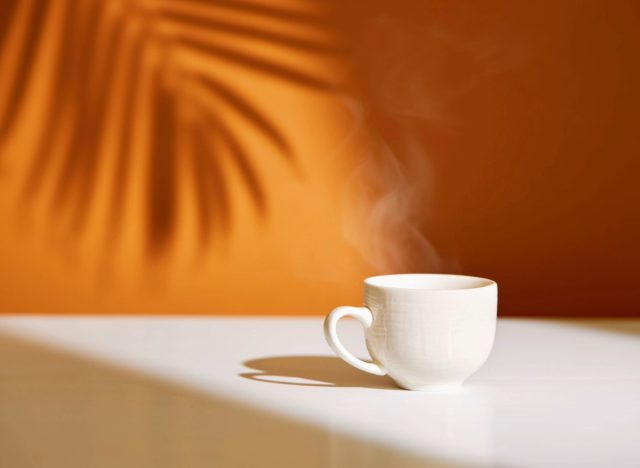
The Nutrition Twins caution you to avoid caffeine after 3 p.m., and for individuals who are more sensitive, put away your coffee mug around noon.
“Caffeine has a half-life of five hours, meaning that the amount you drink is still circulating in your body and is only cut in half five hours later. It can take 10 or more hours to clear your system,” they explain.
Don’t use blue light devices within two to three hours of bedtime.
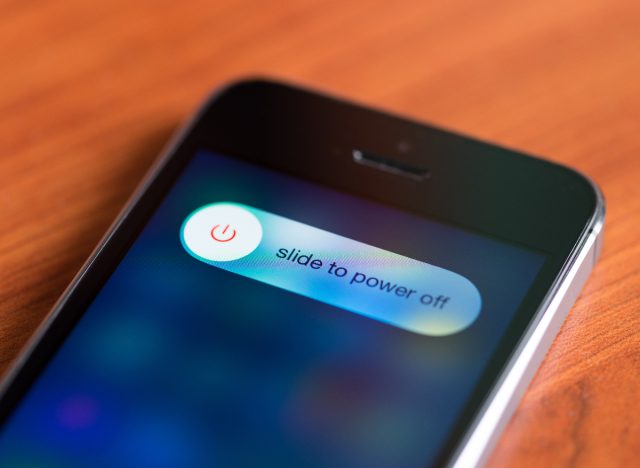
We know how tempting it can be to scroll through social media or catch up on your favorite reality TV show before bed. However, using blue light devices too close to bedtime can wreak havoc on a good night’s rest.
“Most of us are very connected to our devices, but blue lights from phones and computers trick the brain into thinking that it’s daytime, and they prevent the body from releasing melatonin, our body’s sleep hormone,” The Nutrition Twins point out. “So instead, the blue light makes you more alert, which is the opposite of what you want when you’re trying to sleep and unwind. You’ll sleep more soundly if you avoid it.”
Consume foods that are magnesium-rich, and consider taking a magnesium supplement before bed.
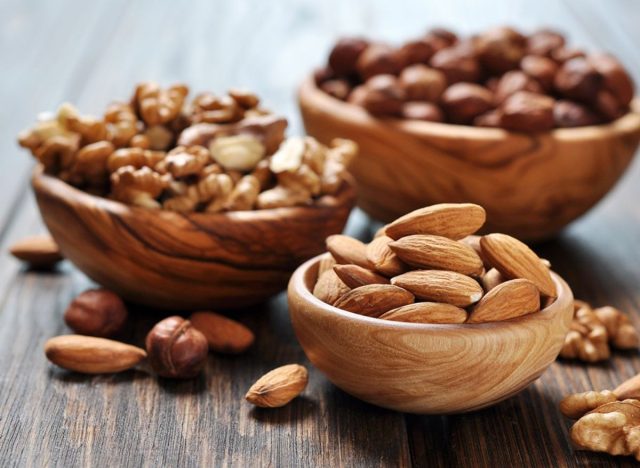
Work magnesium-rich foods into your diet throughout the day, and consider adding a magnesium supplement to your nighttime routine.
“Magnesium relaxes your body, brain, and muscles and can help you sleep more soundly,” The Nutrition Twins say. “Good sources of magnesium include leafy greens, nuts, seeds, whole grains, beans, and seafood. To increase the magnesium in your diet, try adding spinach to your omelets, beans, nuts, and seeds to your leafy green salads, and always be sure to choose whole grains instead of refined grains.”
Avoid eating a big meal right before bed.
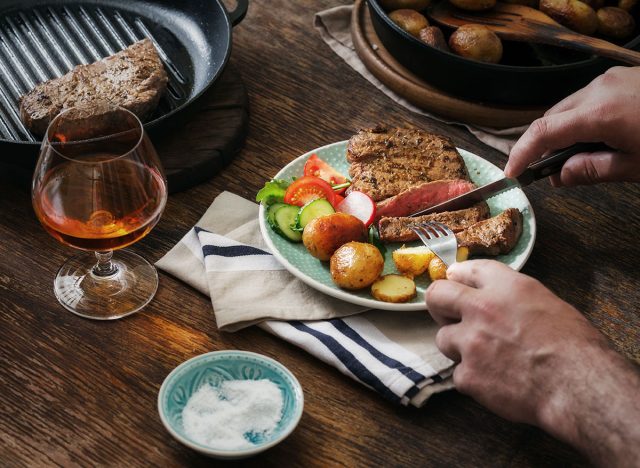
The Nutrition Twins warn that consuming a large meal too close to bedtime can lead to acid reflux, indigestion, and fluctuations in blood sugar.
“Some people also say they are uncomfortable after [eating] a large meal, so it’s hard for them to fall asleep,” The Nutrition Twins offer. “Lighter snacks tend to be okay for many people. Ideally, aim to have larger meals three hours before bed.”
Don’t exercise too close to bedtime.
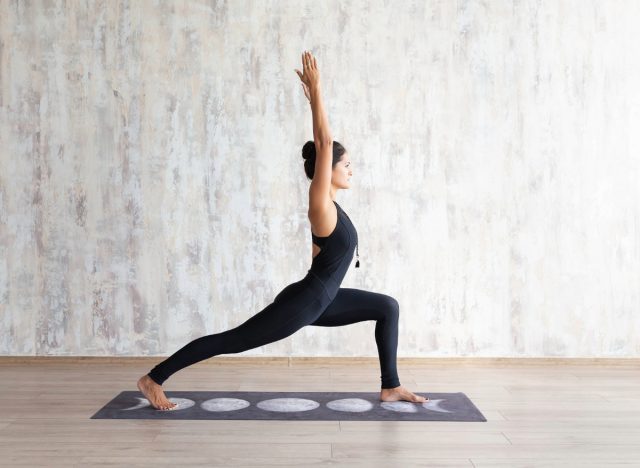
Exercise is key, but don’t save a vigorous workout for too close to bedtime!
“Being active and expending energy helps you sleep more soundly,” The Nutrition Twins explain. “But be careful; you don’t want to exercise too close to bed since it can wind you up, and when you go to sleep, you may feel more wired rather than calm.”
Meditate.

Find your inner peace and calm by engaging in a meditation practice. Meditation is an excellent habit to incorporate into your regular routine. Plus, research published in JAMA Internal Medicine reveals that mindfulness meditation can boost one’s overall sleep quality, especially in adults who deal with sleep disturbances.
So find a guided meditation podcast or channel you love, and achieve your zen.
Consider wearing earplugs and an eye mask.
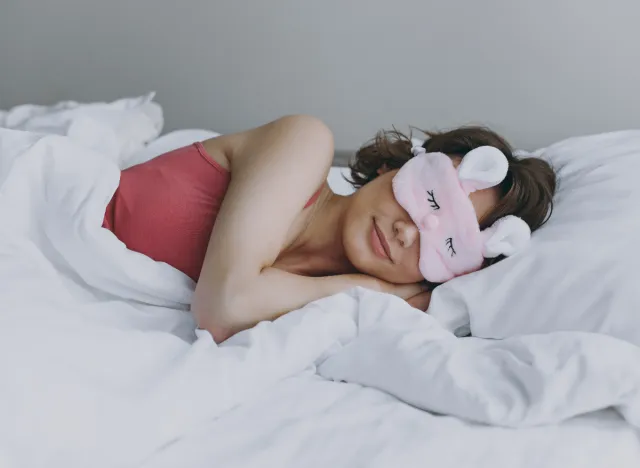
Sleeping in a cold, dark, and quiet room can be incredibly beneficial in achieving a good night’s rest. That’s why The Nutrition Twins suggest using earplugs and an eye mask to ensure your sleep environment is as peaceful as can be.
“Blocking out light is extremely helpful when it comes to sleep since the eyelids are thin and light coming in through the eyelids won’t allow for as deep a sleep as possible,” they tell us. “Blackout shades are helpful as well, but even with the shades, an eye mask helps with deep sleep even more. Ear plugs help to block out noises that can keep you up or wake you from slumber.”
And if you don’t favor earplugs, opt for a white noise machine!
Have some tart cherry juice.
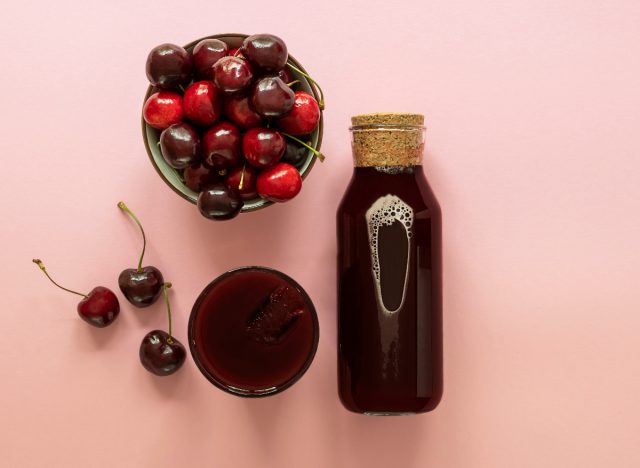
It’s usually recommended to avoid drinking any beverage too close to bedtime so you don’t get up in the middle of the night for the bathroom and disrupt your sleep. With this in mind, consider sipping some tart cherry juice well before hitting the sheets.
According to research published in the Journal of Medicinal Food, drinking tart cherry juice can benefit adults dealing with insomnia. You can whip up a tart cherry juice mocktail or drink it as-is!
Steer clear of afternoon naps.
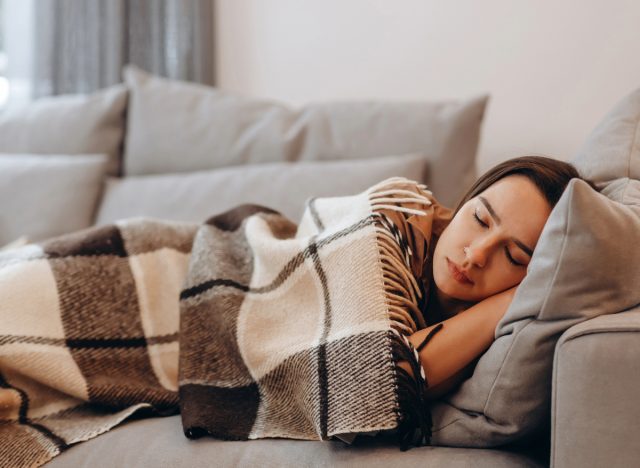
Sometimes, it’s all too tempting to curl up on the couch under a cozy blanket in the afternoon and snooze. Keep in mind, though, that this can mess up your Zs when bedtime rolls around.
“If you fall asleep on the couch in the afternoon but then find that you can’t fall asleep at night, your afternoon nap is interfering with your natural sleep cycle,” The Nutrition Twins warn. “As difficult as it may be to avoid the afternoon nap, try to keep yourself occupied if you start to get tired, or try a little walk or a quick shower to wake you up so you can power through the afternoon and then sleep soundly at night.”

